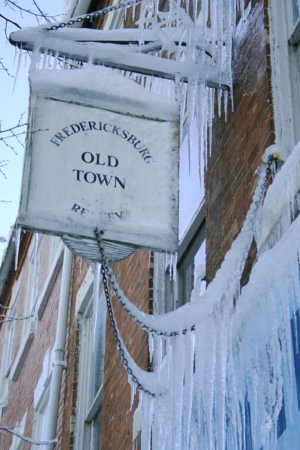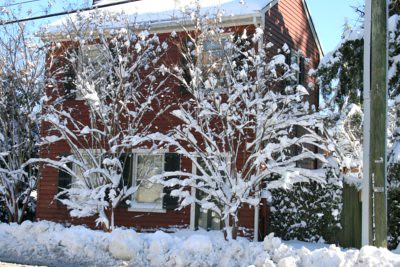Fatal Car Accidents Prompt Concerns About Snow Policy
4 min readWarning: Attempt to read property "post_excerpt" on null in /home/bgonline/public_html/wp-content/themes/newsphere-pro/inc/hooks/hook-single-header.php on line 65

By: JULIE DYMON
With reports of two deaths in the local community due to icy conditions last week, University of Mary Washington commuters are becoming more concerned about their safety.
The Jan. 20 issue of the Bullet included a letter to the editor that called into question UMW’s response to the inclement weather on Jan. 11 and listed icy roads at the entrance to UMW’s parking deck and lack of notification of the icy conditions as concerns.
According to John Wiltenmuth, associate vice president of facilities services, the building and grounds staff begin working 12-hour shifts once inclement weather is predicted. This allows the workers to preemptively treat the campus walks, streets and parking facilities.
His staff remains on campus, continually treating streets and walkways throughout the inclement weather.
Because students and their families are paying for classes, Wiltenmuth explained, “we try to hold classes if we can reasonably do so.”
He is equally aware of the hazards of commuting in poor weather as his staff commutes from Colonial Beach, Westmorland, Lake Anna and Louisa.
In the last year, two of Wiltenmuth’s employees were injured on the job while they were treating the campus walks for ice and snow. He states that he is even more sensitive to the dangers of winter weather events and takes all possible precautions to ensure the safety of everyone on campus.
While the building and grounds crews must remain on campus working through the inclement weather events, students and faculty are able to choose whether or not to drive in.
When asked about the university’s response to the inclement weather, George Farrar, associate vice president for university relations and director of communications, explained that he issued an e-mail to the students and faculty at 1:50 p.m. The subject line read “snow/ice update” and contained a brief warning about the icy conditions and the need for caution.
Speaking to the students and faculty, Farrar explained, “We really do take this responsibility very seriously. We are all in it with you because we are in the same situation as the commuters.”
“My decision is really one of safety,” said Rick Pearce, acting vice president for administration and finance, who is responsible for making the decision to delay or close the university during inclement weather conditions.
Pearce follows a set process before deciding whether to cancel classes due to adverse weather conditions.
He evaluates the weather conditions at 3 p.m. with the help of his staff at the police department who report both on-site road conditions and highway road conditions from the state police.
Pearce also consults reports from the National Weather Service for up-to-date weather information.

Criticized for the late call to close the university on Jan. 11, Pearce conceded that making a decision by 3 p.m. would have been the best scenario.
Pearce said that his decision-making process began at 3 p.m. when he checked weather predictions, radar maps and road conditions. On Jan. 11, all reports indicated that the storm would pass to the west and road conditions were clear, so he did not change the university’s scheduled classes.
“The precipitation began to fall around 5:30 p.m. and it quickly became more of an icy squall,” Pearce recalled.
Knowing that the temperature would drop below freezing throughout the night, Pearce made the decision to let students and faculty out early from night classes so they could return home before the streets froze.
He indicated that he would not wait to make the decision again.
When weather events occur at night, Pearce follows the same procedure of information gathering, but the process begins at 4:30 a.m. Since he is not on campus at that hour, he calls a member of the building and grounds department to get an eyewitness account of the conditions on campus.
Farrar, Wiltenmuth and Pearce echoed one another stating that if students feel it is not safe to commute to campus because of inclement weather, they must make that decision and then make arrangements to make up their work with their professors.
The college does not consider Fredericksburg city school closures when making the decision for UMW, as the public school systems typically don’t make the call to close until 6 a.m. At that point it is too late for the university to consider, according to Pearce.
Making the call for a primarily residential university is much different than making the call for a school system that utilizes public transportation or is constructed solely of commuter students, he said.
As the former Chief Financial Officer of Germanna Community College, Pearce explained that when he made the decision to close Germanna in inclement weather, he was much quicker to close the college because the entire student body commuted.
He also described the liability issues that public schools have to consider when transporting children in school buses on back roads that aren’t typically cleared as quickly as highways and main thoroughfares. For this reason public schools close more often than universities.
UMW is primarily a residential institution and the buildings and grounds people work around the clock to ensure the safest possible environment for UMW residents and commuters. This scenario of 24-hour maintenance coverage allows Pearce to keep the university open more often than public schools or the local community college.











